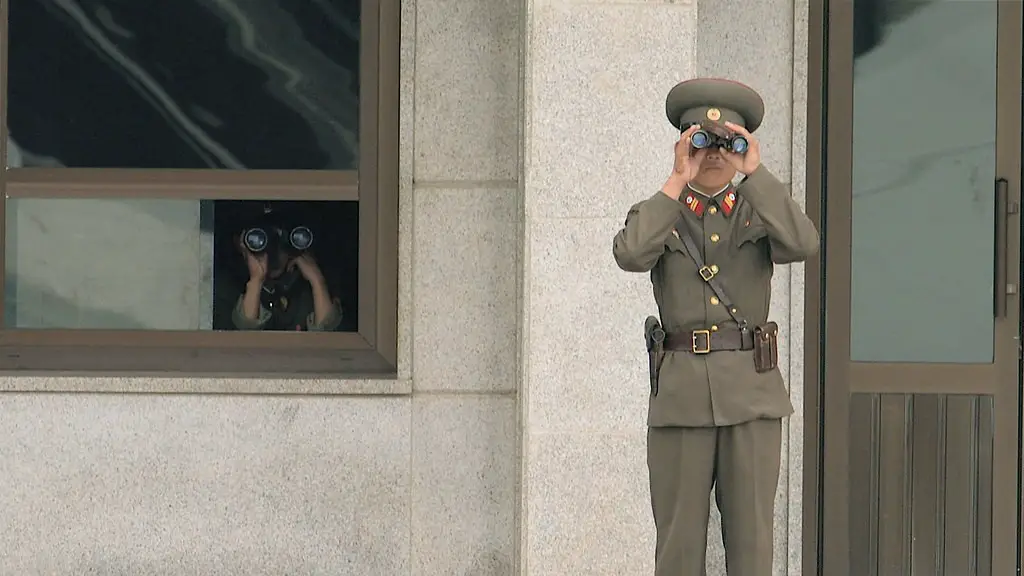Background Information
North Korea is a country located in East Asia, bordering South Korea and sharing sea borders with China. North Korea is one of the most isolated countries in the world and one of the most impoverished nations. For years, the citizens of North Korea have been struggling with extreme poverty, leading to severe food shortages and malnutrition. The root of this problem lies in the economic and political system of North Korea, and many experts believe that the policies implemented by the leadership of the country have caused the current food crisis.
Data
According to a 2020 report by the World Food Programme and the United Nations, around 10.9 million people in North Korea are not able to meet their basic nutritional needs. This has caused approximately 24.9 percent of all children under the age of 5 to suffer from chronic malnutrition, making North Korea one of the most undernourished countries in the world. In addition, the food crisis has been exacerbated by long-term food insecurity, natural disasters that have affected the country, and the lack of access to medical supplies and healthcare services.
Expert Perspectives
Experts argue that North Korea’s economic system is largely to be blamed for the country’s food insecurity. These experts cite North Korea’s unique economy, which relies heavily on government-run agriculture and state subsidies, as the main cause of its food crisis. Furthermore, experts argue that the government’s refusal to allow aid organizations to operate freely in the country, combined with its lack of access to resources, is preventing North Koreans from getting access to the food they need.
Additionally, experts point to the country’s political system as another factor behind the food insecurity. North Korea is an authoritarian state and has very strict rules when it comes to access to information, media and freedom of speech. This has contributed to a lack of awareness and understanding among North Koreans of the outside world, hindering their ability to find adequate food sources.
Insight and Analysis
The food crisis in North Korea is a result of a combination of economic and political factors. It is clear that the policies and systems in place in the country have led to a situation where the citizens lack access to food and resources. Additionally, the refusal by the North Korean government to allow aid organizations to operate freely in the country to assist the citizens has contributed to this food crisis even further.
This crisis cannot be solved overnight and requires concerted efforts from both the North Korean government and the international community. The North Korean government needs to implement policies that can improve its economy, provide access to resources, allow for aid organizations to operate freely, and create an environment where citizens are more aware of the outside world. The international community also needs to come together to provide aid to North Korea to help alleviate the food crisis.
Health Impacts of Malnutrition
Malnutrition has severe impacts on human health, as it leads to a range of deficiency diseases and illnesses. Malnourished children are more prone to diseases such as measles, pneumonia and malaria and are more likely to suffer from stunted growth and mental and physical disabilities.
Malnutrition can also increase the risk of death, especially in younger children. According to UNICEF, an estimated 30,000 children under the age of 5 die due to malnutrition every year in North Korea. This is a stark reminder of the devastating impacts of malnutrition and a reminder that the food crisis must be addressed urgently.
International Response
The international community has responded to the food crisis in North Korea, though the response has been slow. The United Nations has used its sanctions program to attempt to put pressure on the North Korean government to improve its economy, allow aid organizations in and make changes to its policies.
In addition, several international organizations, such as the World Food Programme, have been providing food aid to North Korea. However, the response from the international community has been limited, as the North Korean government has been unwilling to accept larger amounts of aid and the sanctions have had limited impact.
Options for North Korea
The North Korean government has a wide range of options at its disposal to help address the food crisis. These options include allowing aid organizations to operate freely in the country, allowing foreign investments, implementing reforms to the economic system and creating conditions for the citizens to be aware of the outside world.
By taking these steps, North Korea can help alleviate the food crisis and improve the economic conditions of its citizens. Additionally, the North Korean government needs to be open to accepting more aid from the international community to ensure that the citizens get access to the food they need.
Supply Chain Issues
In addition to the economic and political issues, North Korea is also facing a number of supply chain issues that are making it more difficult for the citizens to access food. These issues include the lack of modern transportation systems, making it difficult to move food from farms to markets; lack of adequate storage facilities, making it hard to preserve food; and lack of access to technology, making it harder to monitor and distribute food.
The North Korean government needs to invest in infrastructure and technology to address these supply chain issues. This would allow the citizens to access food more easily and help the country get out of the food crisis.
International Cooperation
The international community also needs to cooperate to address the food crisis in North Korea. This cooperation should include more aid to North Korea, a greater focus on the sanctions and international law, and closer coordination between governments, aid organizations, and businesses to create a unified strategy to address the food crisis.
It is clear that this crisis cannot be addressed in isolation and requires a coordinated international response. The international community needs to come together to provide aid and put pressure on the North Korean government to make changes and move the country towards economic and political stability.


